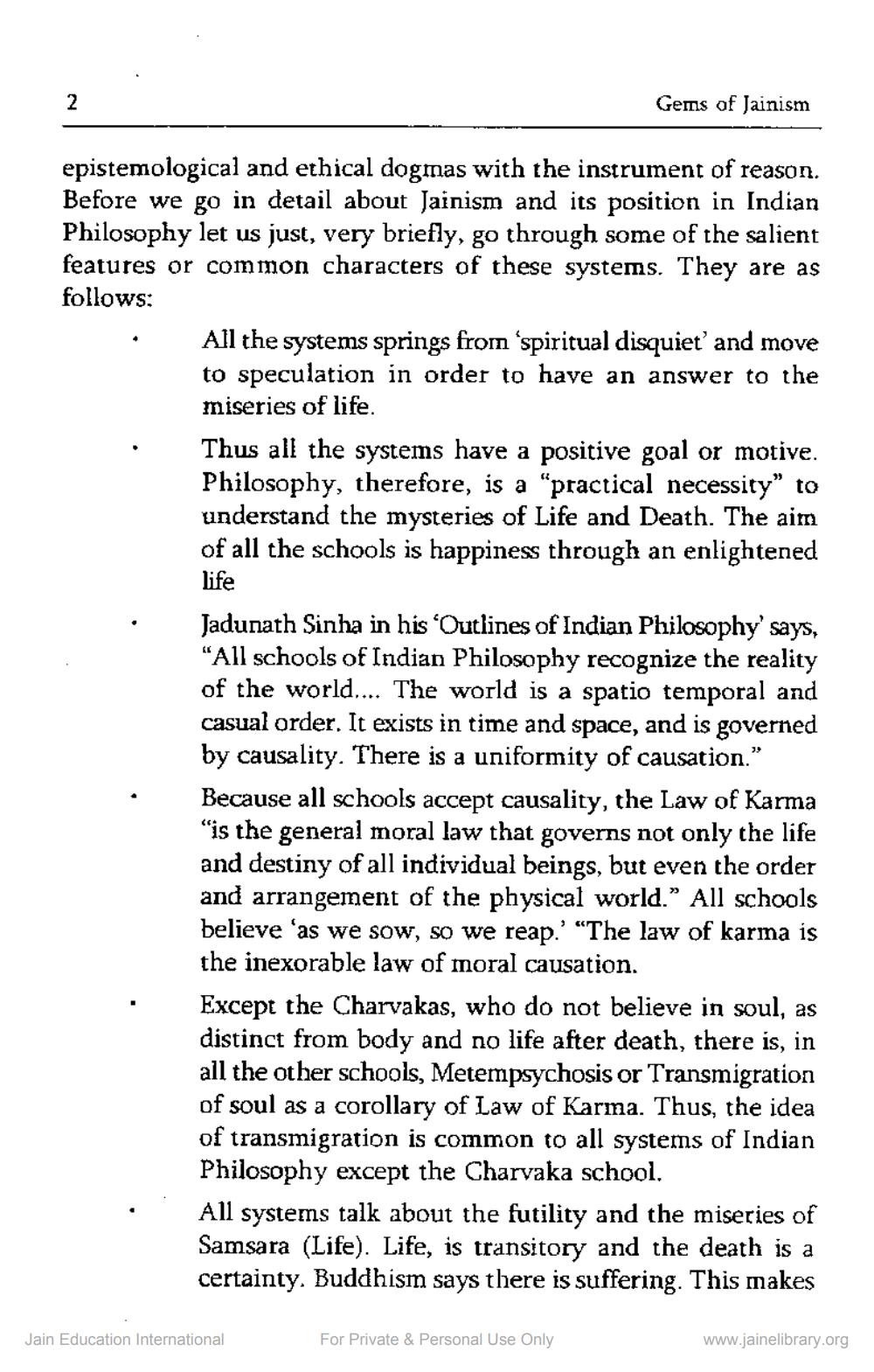Book Title: Jainism in Indian Philosophy Author(s): Hemant Shah Publisher: Z_Gems_of_Jainism_001803.pdf View full book textPage 2
________________ Gems of Jainism epistemological and ethical dogmas with the instrument of reason. Before we go in detail about Jainism and its position in Indian Philosophy let us just, very briefly, go through some of the salient features or common characters of these systems. They are as follows: All the systems springs from 'spiritual disquiet' and move to speculation in order to have an answer to the miseries of life. Thus all the systems have a positive goal or motive. Philosophy, therefore, is a "practical necessity" to understand the mysteries of Life and Death. The aim of all the schools is happiness through an enlightened life Jadunath Sinha in his 'Outlines of Indian Philosophy' says, "All schools of Indian Philosophy recognize the reality of the world.... The world is a spatio temporal and casual order. It exists in time and space, and is governed by causality. There is a uniformity of causation." Because all schools accept causality, the Law of Karma “is the general moral law that governs not only the life and destiny of all individual beings, but even the order and arrangement of the physical world.” All schools believe 'as we sow, so we reap.' “The law of karma is the inexorable law of moral causation. Except the Charvakas, who do not believe in soul, as distinct from body and no life after death, there is, in all the other schools, Metempsychosis or Transmigration of soul as a corollary of Law of Karma. Thus, the idea of transmigration is common to all systems of Indian Philosophy except the Charvaka school. All systems talk about the futility and the miseries of Samsara (Life). Life, is transitory and the death is a certainty. Buddhism says there is suffering. This makes Jain Education International For Private & Personal Use Only www.jainelibrary.orgPage Navigation
1 2 3 4 5 6 7 8 9 10
